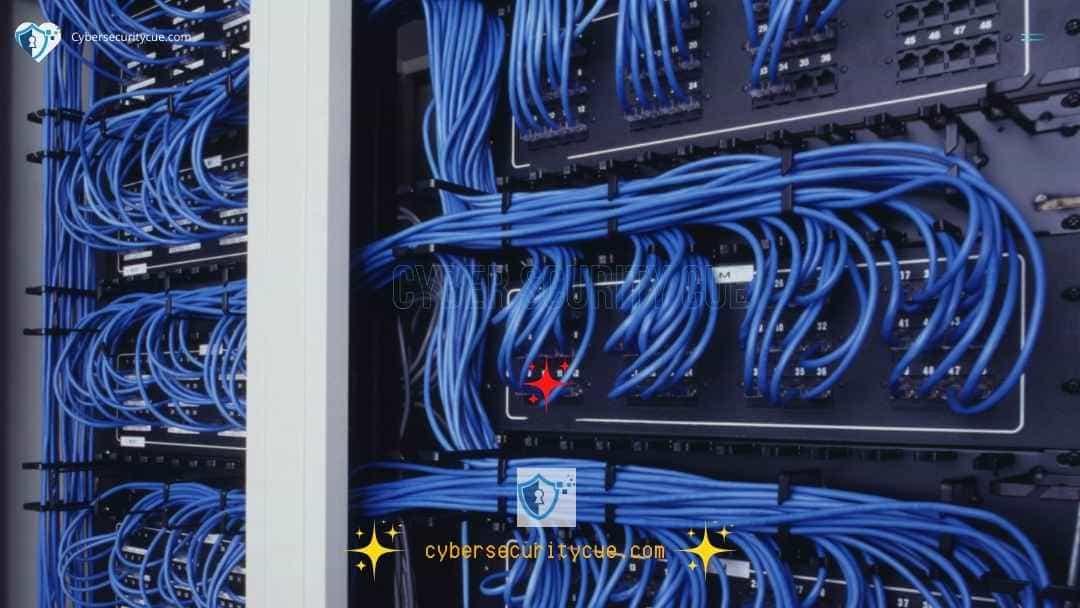Table of Contents
A critical vulnerability has left over 15,000 Four-Faith routers at risk of exploitation, posing a significant threat to businesses and individuals relying on these devices for secure internet connectivity.
This vulnerability tracked as CVE-2024-12856, allows attackers to execute unauthorized commands remotely, leveraging default credentials to gain access.
This discovery, reported by VulnCheck, highlights a growing concern for the security of internet-facing devices. With active exploitation already underway, now is the time for users of Four-Faith routers to take immediate action.
Key Takeaway to 15,000+ Four-Faith Routers at Risk
- 15,000+ Four-Faith routers at risk due to default credentials, allowing attackers to exploit the CVE-2024-12856 vulnerability.
The Vulnerability Explained
Four-Faith routers, models F3x24 and F3x36, are susceptible to a high-severity operating system (OS) command injection flaw identified as CVE-2024-12856.
While the vulnerability scores 7.2 on the CVSS scale, its exploitation depends on attackers authenticating into the system.
Unfortunately, many users fail to change the router’s default credentials, making these devices easy targets for malicious actors.
Using the /apply.cgi endpoint, attackers can manipulate the adj_time_year parameter when adjusting the system time to inject malicious commands.
This tactic grants persistent remote access and facilitates unauthorized data collection or malware installation.
Real-World Exploitation: How It’s Happening
VulnCheck revealed that unknown threat actors have been actively exploiting this flaw by leveraging default credentials.
In one instance, an attack originated from IP address 178.215.238[.]91, previously linked to attempts to weaponize CVE-2019-12168, another remote code execution vulnerability targeting Four-Faith routers.
According to GreyNoise, attacks related to CVE-2019-12168 were still ongoing as of December 19, 2024.
This continued activity underscores the persistent danger of neglecting firmware updates and securing internet-facing devices.
The Scale of the Threat
Data from Censys shows over 15,000 Four-Faith routers exposed online, with many likely still using default credentials. Experts believe that attacks exploiting CVE-2024-12856 may have been occurring since early November 2024.
A lack of timely patches exacerbates the problem. While VulnCheck responsibly disclosed the vulnerability to Four-Faith on December 20, 2024, no updates have been released to address this issue. The situation remains critical as users wait for a solution.
Default Credentials: A Recurring Problem
Using default credentials isn’t just risky but it’s reckless. Cybercriminals thrive on systems with predictable login details.
For instance, in 2016, the infamous Mirai botnet hijacked IoT devices with default settings to launch some of the largest distributed denial-of-service (DDoS) attacks in history.
The current Four-Faith router exploit mirrors this issue, serving as a stark reminder for users to change default passwords immediately upon installation.
Steps to Protect Yourself
If you own a Four-Faith router, take these steps to safeguard your device:
- Change Default Credentials: Use a strong, unique password to secure your device.
- Restrict Access: Configure your router to limit access only to trusted IP addresses.
- Monitor for Updates: Stay informed about firmware patches from Four-Faith.
- Enable Firewalls: Implement firewall rules to block unauthorized traffic.
These measures can significantly reduce the risk of exploitation.
Looking Ahead: The Future of IoT Security
The exploitation of 15,000+ Four-Faith routers at risk underscores a broader issue with IoT device security. As more devices connect to the internet, the attack surface grows, and vulnerabilities like CVE-2024-12856 become inevitable.
Cybersecurity experts predict that without strict regulations and improved security practices, incidents like these will escalate. Governments and manufacturers must collaborate to enforce robust security measures, ensuring a safer digital ecosystem.
About VulnCheck
VulnCheck is a leading cybersecurity firm specializing in vulnerability analysis and exploitation research. Their work provides critical insights into emerging threats, helping users protect their systems effectively.
Rounding Up
The revelation that over 15,000 Four-Faith routers are at risk due to the CVE-2024-12856 vulnerability is a wake-up call for businesses and individuals. The exploitation of default credentials is a preventable issue, yet it continues to expose countless devices to attacks.
To protect against threats like these, users must adopt proactive measures, including changing default settings, monitoring devices, and staying updated on the latest security patches. The responsibility for IoT security lies not only with manufacturers but also with users.
FAQs
What is CVE-2024-12856?
- A high-severity OS command injection vulnerability affecting Four-Faith routers.
Which Four-Faith router models are impacted?
- Models F3x24 and F3x36 are vulnerable.
How can I secure my Four-Faith router?
- Change default credentials immediately.
- Restrict access to trusted IPs.
- Monitor for firmware updates and enable firewalls.
Is there a patch available for this vulnerability?
- As of now, no patch has been released.
What makes default credentials so dangerous?
- Default credentials are predictable, allowing hackers to gain unauthorized access with minimal effort.





